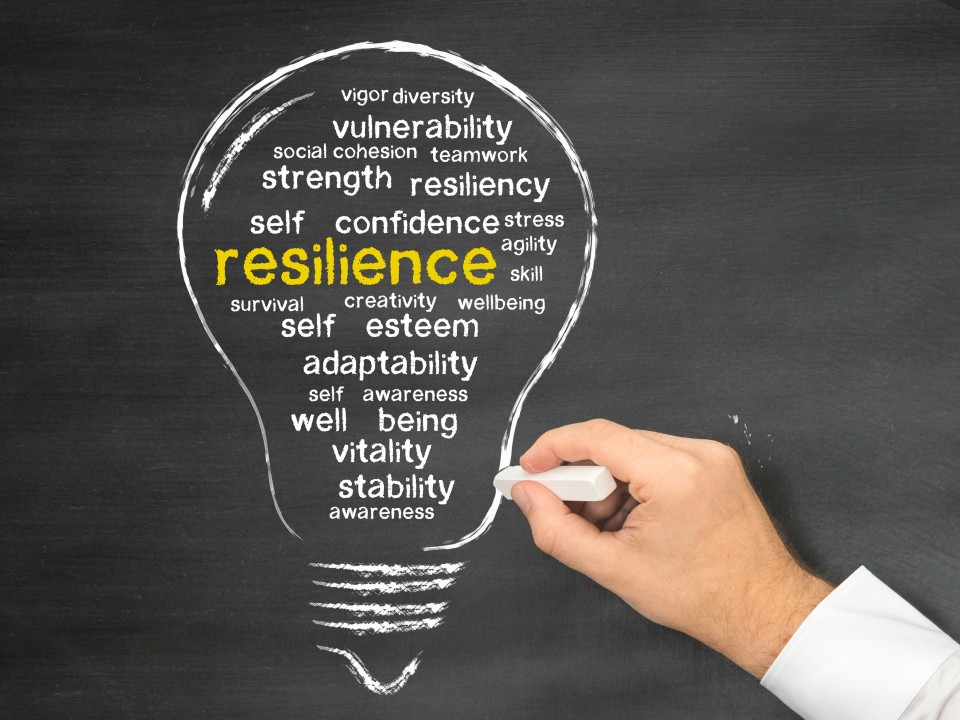
Introduction:
Resilience is the ability to bounce back from setbacks, adapt to challenges, and thrive in the face of adversity. It is a fundamental aspect of human psychology that enables individuals to navigate life’s ups and downs with strength, flexibility, and perseverance. In this article, we explore the art of resilience, examining the psychological principles, strategies, and practices that promote resilience and well-being.
Understanding Resilience:
Resilience is not simply the absence of adversity or hardship but rather the capacity to withstand and overcome adversity when it arises. It involves a combination of psychological, emotional, and behavioral factors that enable individuals to cope effectively with stress, trauma, and setbacks. Resilience is not a fixed trait but rather a dynamic process that can be cultivated and strengthened over time through intentional effort and practice.
Psychologists have identified various factors that contribute to resilience, including:
- Positive Relationships: Strong social support networks provide a buffer against stress and adversity, fostering feelings of belonging, acceptance, and connection. Relationships with family, friends, mentors, and community members play a crucial role in promoting resilience and well-being.
- Optimism and Positive Thinking: Optimistic individuals are more likely to view setbacks as temporary, specific, and manageable, rather than permanent, pervasive, and insurmountable. Cultivating a positive outlook and reframing negative experiences in a more hopeful and constructive light can enhance resilience and emotional well-being.
- Problem-Solving Skills: Resilient individuals are adept at identifying and implementing effective solutions to problems and challenges. They approach adversity with a sense of agency and resourcefulness, seeking out opportunities for growth and learning in the face of adversity.
- Emotional Regulation: Emotional resilience involves the ability to regulate one’s emotions and cope effectively with stress, anxiety, and negative feelings. Techniques such as mindfulness, relaxation, and emotional expression can help individuals manage their emotions and maintain psychological balance during difficult times.
- Adaptability and Flexibility: Resilient individuals are adaptable and flexible in their thinking and behavior, able to adjust to changing circumstances and bounce back from setbacks with agility and resilience. They embrace change as an opportunity for growth and innovation rather than as a threat to stability or security.
Strategies for Building Resilience:
While some individuals may naturally possess greater resilience than others, resilience is a skill that can be developed and strengthened through deliberate practice and self-awareness. Here are some strategies for building resilience:
- Cultivate Social Support: Nurture positive relationships with family, friends, colleagues, and mentors who provide emotional support, encouragement, and practical assistance during challenging times. Seek out opportunities for social connection and belonging, both online and offline.
- Develop Coping Skills: Learn and practice effective coping skills for managing stress, anxiety, and adversity. Techniques such as deep breathing, progressive muscle relaxation, and guided imagery can help calm the mind and body and promote relaxation and resilience.
- Foster Optimism: Cultivate a positive outlook on life by focusing on your strengths, accomplishments, and potential for growth. Practice gratitude, optimism, and self-compassion, and challenge negative thoughts and beliefs that undermine your resilience and well-being.
- Set Realistic Goals: Break down larger goals into smaller, achievable steps and celebrate your progress along the way. Set realistic expectations for yourself and others, and be flexible and adaptive in your approach to goal pursuit.
- Practice Self-Care: Prioritize self-care activities that nourish your body, mind, and spirit, such as exercise, nutrition, sleep, and relaxation. Make time for activities that bring you joy, fulfillment, and meaning, and set boundaries to protect your well-being.
- Cultivate Meaning and Purpose: Identify your values, passions, and goals in life and pursue activities that align with your core values and sense of purpose. Engage in meaningful work, hobbies, and relationships that give your life meaning and direction, even in the face of adversity.
- Seek Support When Needed: Don’t be afraid to reach out for help when you’re struggling. Talk to trusted friends, family members, or mental health professionals about your thoughts and feelings, and explore therapy, support groups, or other resources that can provide guidance and assistance.
The Importance of Resilience:
Resilience is essential for navigating life’s challenges and transitions with courage, strength, and grace. It enables individuals to bounce back from setbacks, learn from adversity, and grow stronger and more resilient in the process. Research has shown that resilient individuals are better able to cope with stress, maintain emotional well-being, and achieve their goals and aspirations.
Moreover, resilience is not only beneficial for individuals but also for communities and societies as a whole. Resilient communities are better equipped to withstand and recover from natural disasters, economic downturns, and social upheavals, fostering collective solidarity, cohesion, and resilience.
In times of crisis and uncertainty, such as the COVID-19 pandemic, resilience becomes even more critical for individuals and communities to navigate the challenges and uncertainties of the future. By cultivating resilience and supporting one another through acts of kindness, compassion, and solidarity, we can build a brighter and more resilient future for ourselves and future generations.
Conclusion:
The art of resilience is a testament to the human spirit’s capacity to overcome adversity, thrive in the face of challenges, and emerge stronger and more resilient than before. By cultivating social support, optimism, problem-solving skills, emotional regulation, adaptability, and self-care, individuals can build resilience and thrive in the face of life’s inevitable ups and downs.
As we navigate the complexities of life, may we approach challenges with courage, resilience, and a sense of possibility, knowing that within every setback lies an opportunity for growth, transformation, and renewal. By embracing the art of resilience, we can navigate life’s journey with grace, wisdom, and resilience, and create a brighter, more resilient future for ourselves and our communities.
References:
– Masten, A. S., & Narayan, A. J. (2012). Child development in the context of disaster, war, and terrorism: Pathways of risk and resilience. Annual Review of Psychology, 63, 227-257.
– Rutter, M. (2012). Resilience as a dynamic concept. Development and Psychopathology, 24(2), 335-344.
– Southwick, S. M., & Charney, D. S. (2012). Resilience: The science of mastering life’s greatest challenges. Cambridge University Press.
– Bonanno, G. A. (2004). Loss, trauma, and human resilience: Have we underestimated the human capacity to thrive after extremely aversive events? American Psychologist, 59(1), 20-28.
– Masten, A. S. (2014). Global perspectives on resilience in children and youth. Child Development, 85(1), 6-20.







